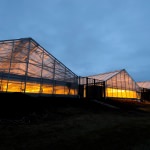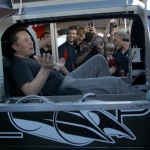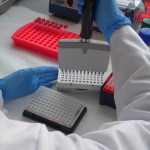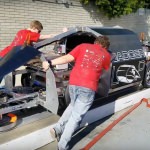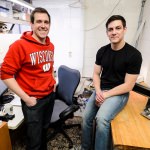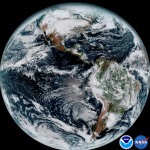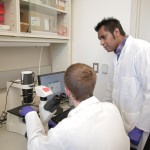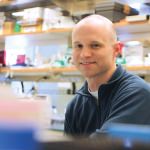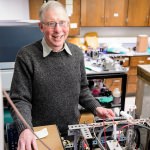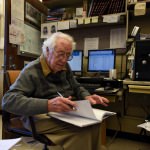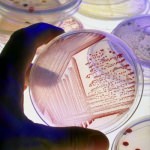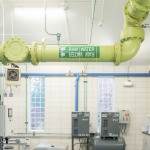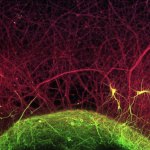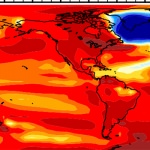Category Science & Technology
Monsanto donates Middleton plant research facility to UW–Madison
A $10 million commercial biotech plant laboratory in Middleton, Wisconsin, first opened in 1982 with the help of University of Wisconsin–Madison scientists, will soon become part of UW–Madison following a donation from Monsanto Company. Read More
UW-Madison team wins Innovation Award in Hyperloop competition
A team of University of Wisconsin–Madison students won an innovation award in a worldwide SpaceX Hyperloop pod competition. Read More
UW startup bringing high-speed gene sequencing to water purity tests
A fledgling company that emerged from the UW–Madison College of Engineering applies high-speed genetic sequencing to the difficult problem of detecting — and for the first time counting — pathogens in water. Read More
Badgerloop unveils pod design at California competition
A behind-the-scenes look at UW–Madison's BadgerLoop team as it unveils the pod that will compete in the Hyperloop competition. Read More
Capital infusion prepares UW–Madison startup to stir up industrial adhesive market
An idea hatched during an engineering class at the University of Wisconsin–Madison promises to reduce waste in a common industrial mixing process. Read More
CDC awards $10 million for insect borne disease center
The Centers for Disease Control and Prevention (CDC) has awarded $10 million to a consortium of Midwestern universities to establish a new research and training program to stem the spread of disease carried by vectors like ticks and mosquitoes. Read More
UW-Madison team at Hyperloop competition
After more than a year of intensive work, a team of University of Wisconsin–Madison students is ready to test its futuristic high-speed transport vehicle on SpaceX’s Hyperloop test track in California. Read More
GOES-16 offers Earth’s first light in true color
After spending months in space, quietly orbiting the Earth, the next-generation geosynchronous satellite has broken its silence and sent back its first images, with help from UW–Madison. Read More
Watching gene editing at work to develop precision therapies
University of Wisconsin–Madison engineers have developed methods to observe gene editing in action, and they’re putting those capabilities to work to improve genetic engineering techniques. Read More
‘Magic’ plus UW science equals world-champ cheese
Wisconsin cheese is at least as old as the state. The University of Wisconsin–Madison has one of the world’s great institutions of dairy food science,… Read More
UW-Madison astrophysics innovator Lawler wins national award
James Lawler is a professor of physics known for devising techniques to measure the chemical elements in the sun and other stars. Read More
UW-Madison launches Microbiome Initiative
Recent studies have shown that the complement of microorganisms known as the microbiome is an important determinant of human health and disease. Read More
Unraveling the radium riddle
UW-Madison researchers began a two-year grant from the University of Wisconsin Water Resources Institute (WRI) to examine water samples taken from 22 monitoring wells in and around Dane County to try to determine the geological strata that contribute to elevated radium levels in groundwater. Read More
Forward Motion video: The art of science
A look behind the scenes at a yearly competition at UW–Madison to find incredibly cool science images. Read More
Abrupt climate change could follow collapse of Earth’s oceanic conveyor belt
A new study shows Earth’s oceanic conveyor belt, the Atlantic Meridional Overturning Circulation, may be less stable than thought, posing a risk of abrupt climate change. Read More
More frequent hurricanes not necessarily stronger on Atlantic coast
Active Atlantic hurricane periods, like the one we are in now, are not necessarily a harbinger of more, rapidly intensifying hurricanes along the U.S. coast, according to new research performed at the University of Wisconsin–Madison. Read More
Hugh Iltis, UW’s ‘battling botanist,’ dies at 91
Passionate, articulate and informed, Iltis was opinionated, sometimes argumentative, but always a fearless defender of the natural world he revered. Read More

